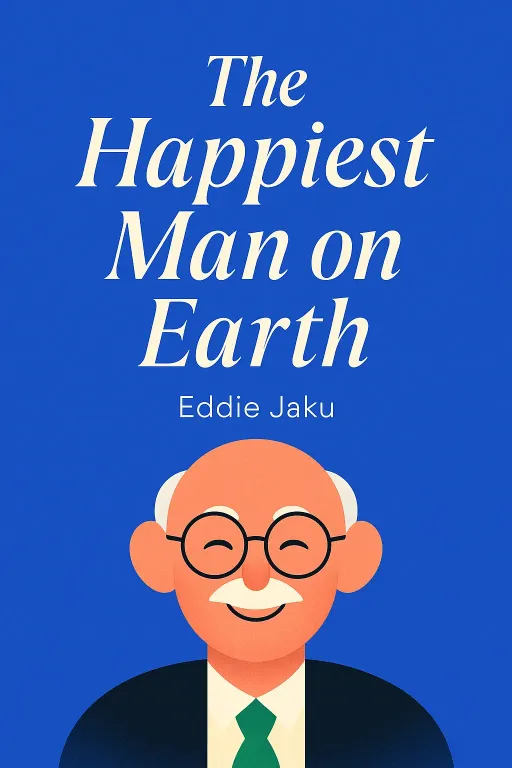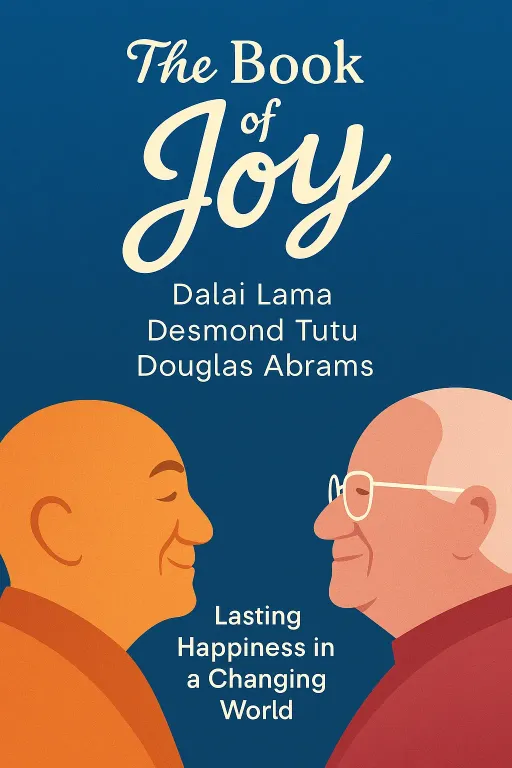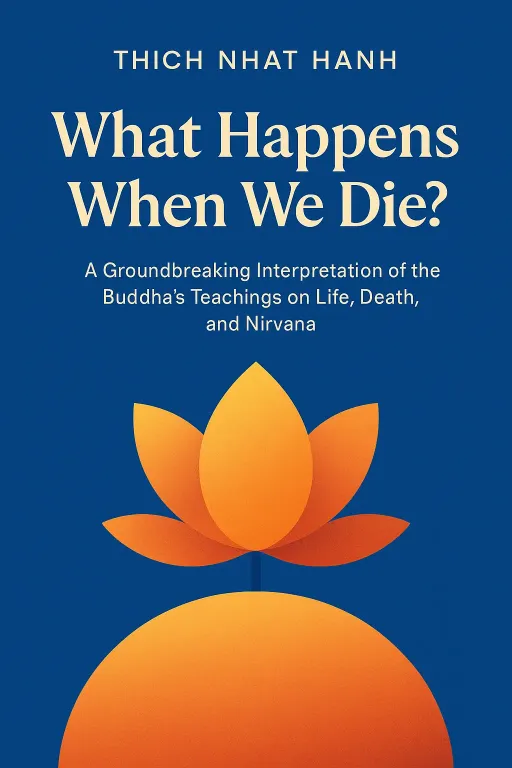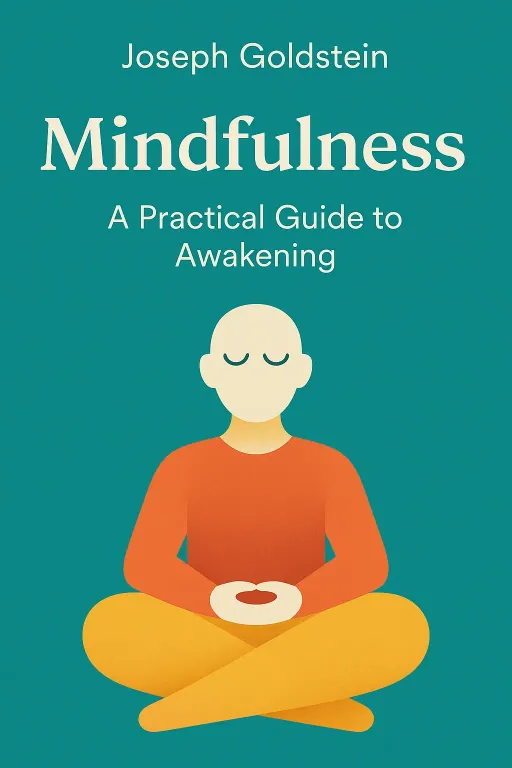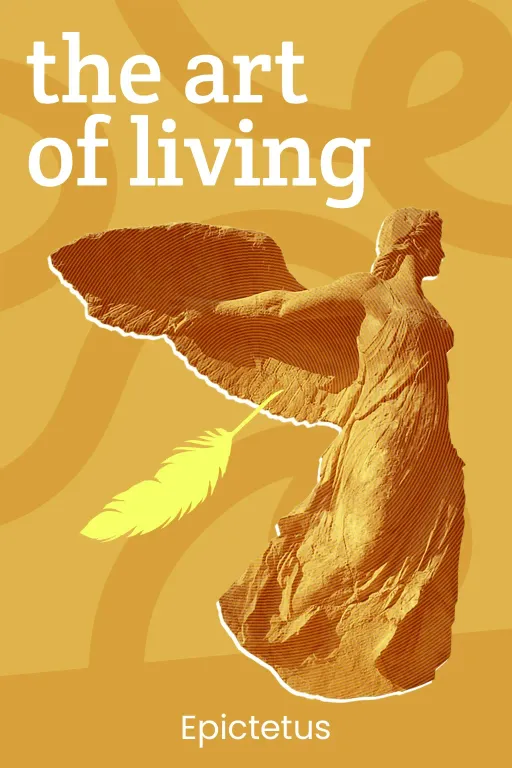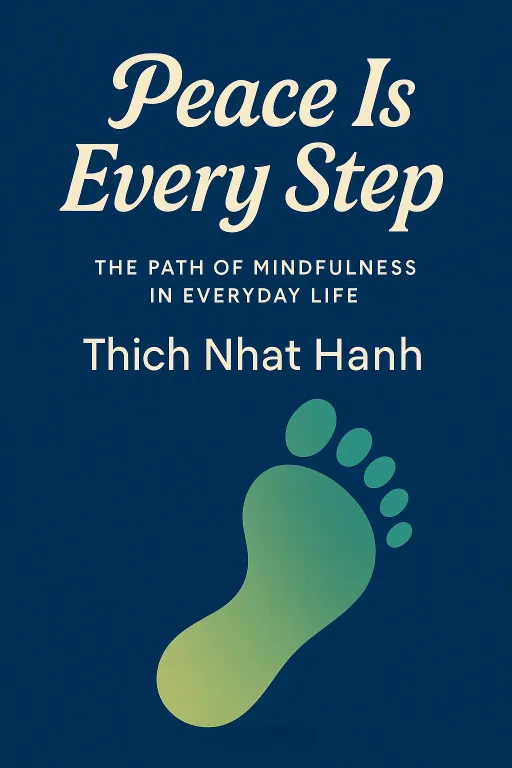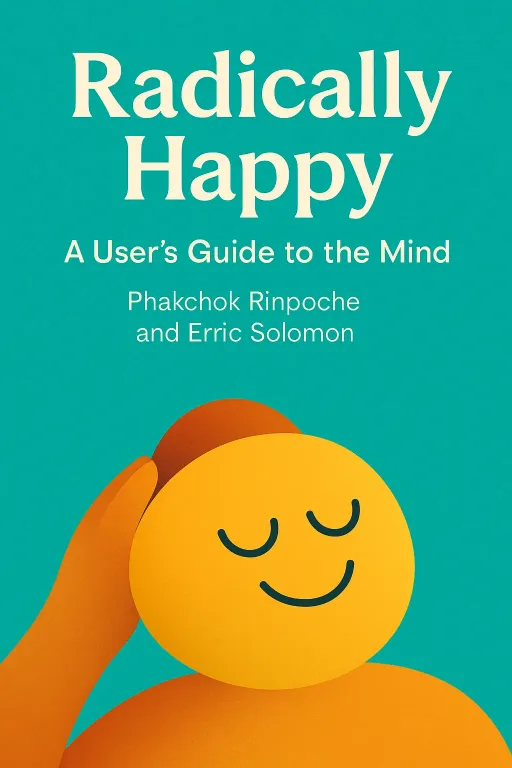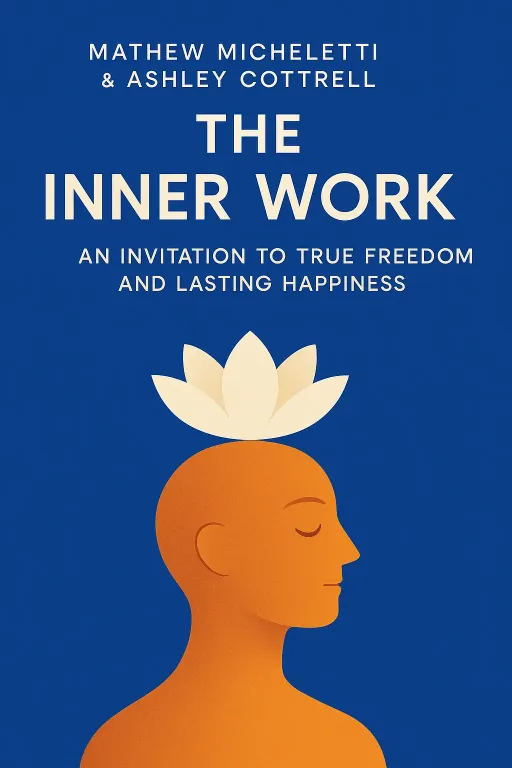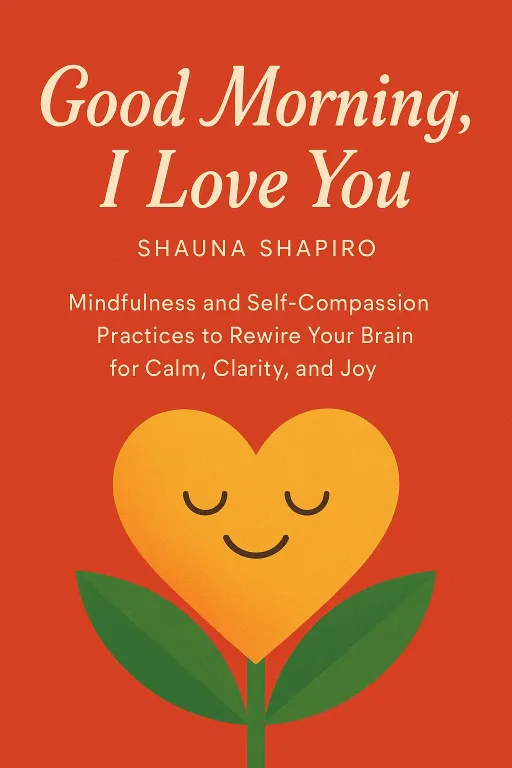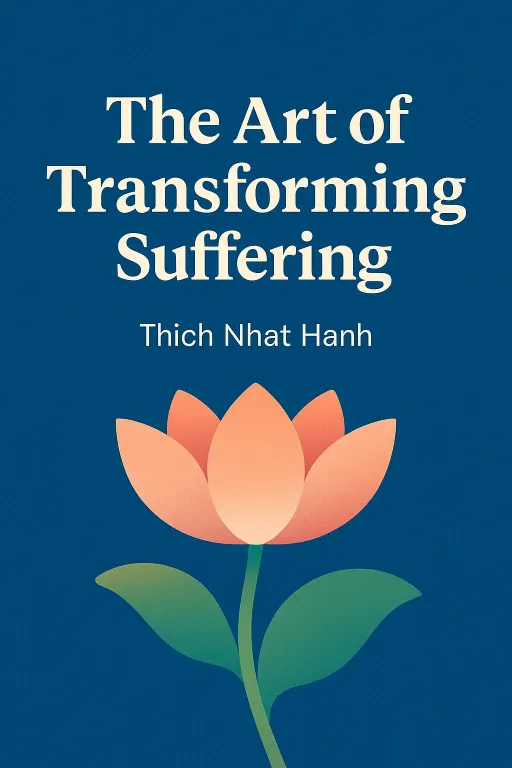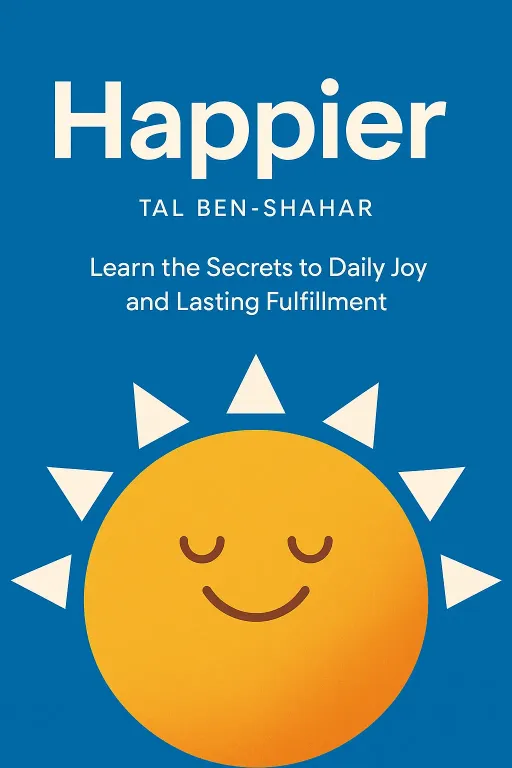
Happier
13 minLearn the Secrets to Daily Joy and Lasting Fulfillment
Introduction
Narrator: At sixteen years old, Tal Ben-Shahar achieved his life’s dream. After five years of grueling training, he won the Israeli national squash championship. He had believed this single achievement would fill a persistent void he felt, bringing him lasting joy and fulfillment. For one night, surrounded by celebrating family and friends, it did. But the next morning, the elation was gone, replaced by the same familiar emptiness. This profound disillusionment sparked a lifelong quest to understand a fundamental paradox: if achieving our most cherished goals doesn’t bring lasting happiness, what does?
This very question is at the heart of his book, Happier: Learn the Secrets to Daily Joy and Lasting Fulfillment. Ben-Shahar, who would go on to teach Harvard's most popular course on positive psychology, deconstructs our flawed pursuits of happiness and offers a new model for a life rich with both present joy and future purpose.
The Arrival Fallacy: Why Reaching Your Goals Won't Make You Happy
Key Insight 1
Narrator: The core of Ben-Shahar’s personal crisis after his squash victory illustrates a cognitive trap he calls the "arrival fallacy." This is the mistaken belief that once we arrive at a certain destination—be it a championship title, a promotion, or a financial milestone—we will be granted lasting happiness. Many people live their lives as "rat racers," enduring present misery for the promise of a future reward. They tell themselves, "I'll be happy once I become a partner," or "I'll be happy once I pay off the mortgage."
However, as research and personal experience show, this relief is almost always temporary. Psychologists have found that after major life events, whether positive like winning the lottery or negative like suffering a debilitating accident, people tend to return to their baseline level of well-being. The elation of success fades, and the rat racer, having reached the destination, is left feeling empty, often wondering, "What now?" Ben-Shahar argues that the problem isn't with having goals, but with the false expectation that the destination is the sole source of fulfillment. True happiness is not found at the peak of the mountain; it is found in the experience of the climb itself.
The Hamburger Model: Four Paths to (Un)Happiness
Key Insight 2
Narrator: To make this idea tangible, Ben-Shahar introduces the "hamburger model," a simple yet profound metaphor for different approaches to life. He asks us to imagine four types of hamburgers.
The first is the classic junk-food burger: it tastes great in the moment (present benefit) but will make you feel sick later (future detriment). This represents the Hedonism archetype, a life dedicated to seeking pleasure and avoiding pain without regard for future consequences. The hedonist lives for the moment, but a life of fleeting pleasures without a deeper purpose eventually leads to a sense of emptiness.
The second is a bland, tasteless vegan burger made with the healthiest ingredients. It’s good for you in the long run (future benefit) but offers no enjoyment in the present (present detriment). This is the Rat-Race archetype, the person who sacrifices today’s happiness for the promise of a future reward, living in a constant state of stress and anxiety.
The third burger is the worst of all: it’s both tasteless and unhealthy (present and future detriment). This represents the Nihilism archetype, the person who has given up on happiness entirely. Chained to past failures, the nihilist believes that life has no meaning and that fulfillment is impossible, leading to a state of learned helplessness and despair.
Finally, there is the ideal burger: one that is both delicious and healthy, providing both present and future benefit. This is the Happiness archetype. A happy life is not about choosing between present and future; it’s about finding activities that are both meaningful and pleasurable, integrating purpose and enjoyment into the journey.
The Ultimate Currency: Redefining Wealth as Pleasure and Meaning
Key Insight 3
Narrator: In a world that often measures success in dollars and prestige, Ben-Shahar proposes a radical shift in perspective: happiness is the ultimate currency. He defines happiness as "the overall experience of pleasure and meaning." Pleasure is the present benefit, the joy we feel in the moment. Meaning is the future benefit, the sense of purpose we derive from our actions.
Material wealth and fame are subordinate to this ultimate currency. They are only valuable if they can be translated into happiness. The story of educator Marva Collins powerfully illustrates this. In 1975, she founded a school in inner-city Chicago for children who had been labeled "unteachable." For twenty years, she struggled with financial deficits, constantly on the verge of closure. Yet, when one of her students, a girl previously considered autistic and non-verbal, spoke her first words—"I love you, Mrs. Ollins"—Collins wrote that the tears of joy made her feel like "the wealthiest woman in the world." She had earned a fortune in the ultimate currency. This shows that true wealth is not about what we have in the bank, but about the meaning and pleasure we derive from our lives.
The Power of Rituals: Moving from Willpower to Habit
Key Insight 4
Narrator: Understanding the principles of happiness is one thing; applying them is another. Ben-Shahar argues that relying on self-discipline and willpower alone is often a recipe for failure. Instead, the key to lasting change is to create rituals. A ritual is a precise behavior, performed at a specific time, motivated by a deeply held value.
The initial effort to establish a ritual can be difficult, but once it becomes a habit, it requires very little mental energy to maintain, much like brushing our teeth. We don't debate whether or not to brush our teeth each morning; we just do it because we value hygiene. Similarly, we can create rituals for happiness. For example, research by Robert Emmons and Michael McCullough found that participants who kept a daily gratitude journal—writing down at least five things they were grateful for—experienced significantly higher levels of emotional and physical well-being. By ritualizing practices like expressing gratitude, exercising, or spending quality time with family, we move beyond the finite resource of willpower and build a sustainable foundation for a happier life.
Crafting a Calling: Finding Meaning in the Work You Already Do
Key Insight 5
Narrator: For many, work is a primary source of stress and dissatisfaction. Psychologist Amy Wrzesniewski’s research shows that people relate to their work in one of three ways: as a job (a means to a paycheck), a career (a path for advancement and prestige), or a calling (an activity that is fulfilling in its own right). Unsurprisingly, those who view their work as a calling are significantly happier.
However, Ben-Shahar argues that one doesn't need to find a new profession to experience it as a calling. The key is to craft the work you already do to maximize meaning and pleasure. In a remarkable study, Wrzesniewski and Jane Dutton observed hospital cleaners. One group saw their work as a tedious job. But another group experienced it as a calling. These cleaners actively crafted their roles: they engaged with patients and nurses, took the initiative to make the hospital environment more welcoming, and saw their work not as just cleaning, but as contributing to the healing of others. By changing their perception and focusing on the human impact of their work, they transformed a routine job into a source of profound meaning and happiness.
The Permission to Be Human: Overcoming the Fear of Your Own Light
Key Insight 6
Narrator: One of the most significant internal barriers to happiness is the feeling that we are unworthy of it. This can lead to self-sabotage: we find a fulfilling job or a loving relationship, and then find a way to ruin it because, deep down, we don't believe we deserve it.
Author Marianne Williamson wrote, "Our deepest fear is not that we are inadequate. Our deepest fear is that we are powerful beyond measure. It is our light, not our darkness, that most frightens us." We question our right to be brilliant, gorgeous, or happy. Ben-Shahar argues that to be happy, we must first accept our inherent worthiness. We must give ourselves the permission to be human—to experience the full range of emotions, including sadness and anxiety, without judgment. Happiness is not about being in a constant state of bliss; it's about accepting our humanity and believing we are worthy of a life filled with both meaning and pleasure.
Conclusion
Narrator: The single most important takeaway from Happier is that happiness is not a destination we arrive at, nor is it a series of fleeting highs. It is the ongoing experience of climbing toward a meaningful peak. It is the integration of pleasure in the present and a purpose that directs us toward the future. A happy life is not built by a single, grand event, but is shaped incrementally, moment by moment, through the choices we make and the perspectives we cultivate.
The book leaves us with a profound challenge. Many of us live our lives waiting—waiting for graduation, for a promotion, for retirement—believing that happiness is just around the corner. Ben-Shahar forces us to confront the reality that "this is it." The potential for happiness is not in some distant future; it is embedded in the ordinary, day-to-day details of our lives right now. The ultimate question, then, is not what we need to achieve to be happy, but how we can start making the most of what is already in front of us. If not now, when?
